-
About
- About Listly
- Community & Support
- Howto
- Chrome Extension
- Bookmarklet
- WordPress Plugin
- Listly Premium
- Privacy
- Terms
- DMCA Copyright
- © 2010-2025 Boomy Labs

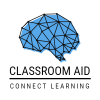 ClassroomAid
ClassroomAid
Listly by ClassroomAid
Resources for Computer Science education

Below are suggested curricula for each grade band; please use the following resources and their reviews to find the tools that are appropriate for your classroom.

International CS education standards: US, UK, Australia, New Zealand, Isreal.

Computational thinking (CT) involves a set of problem-solving skills and techniques that software engineers use to write programs that underlie the computer applications you use such as search, email, and maps
Foster diversity in your introductory computer science courses with quality content and engaging pedagogy (and teacher community)!
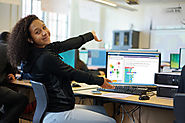
The Association for Computing Machinery, Code.org, Computer Science Teachers Association, Cyber Innovation Center, and National Math and Science Initiative have collaborated with states, districts, and the computer science education community to develop conceptual guidelines for computer science education.
REVISED 2016 CSTA STANDARDS TASK FORCE #CSTA

Welcome to the fun side of computer science! Explore how computer science is also about people, solving puzzles, creativity, changing the future and, especially having fun.
Learn about computing while teaching yourself magic tricks perhaps?
Or learn cyber security by watching science fiction films
If you like puzzles then have a go at some of our computational thinking puzzles and read about the linked computer science
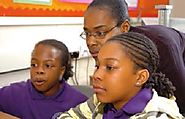
Computing At School (CAS) aims to promote the teaching of computer science at school. Our goal is to put the excitement back into Computing at school. (England)
CAS London: https://www.computingatschool.org.uk/crcs/london
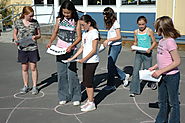
CS Unplugged is a collection of free learning activities that teach Computer Science through engaging games and puzzles that use cards, string, crayons and lots of running around. The activities introduce students to underlying concepts such as binary numbers, algorithms and data compression, separated from the distractions and technical details we usually see with computers. CS Unplugged is suitable for people of all ages, from elementary school to seniors, and from many countries and backgrounds. Unplugged has been used around the world for over twenty years, in classrooms, science centers, homes, and even for holiday events in a park!

Student learning(Made with Code)
Educator resources(courses/lesson plans/manual for teachers)
Coding tools and technology(Blockly, Blockly games, Pencil Code, Coding with Chrome)
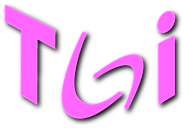
Lesson plans, classroom materials, and teaching strategies on the Global Impact of Computing. Portal to our collection of creative, engaging resources to support teachers of AP Computer Science Principles, and others who want to bring social impact into high school CS classrooms.
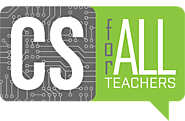
CS for All Teachers offers virtual group space for NSF Funded CS10K Projects as well as other interest-based discussion groups committed to ongoing engagement around computer science-related topics. If you don’t find a group that matches your interests, contact us at csforallteachers@air.org about potentially starting your own.

SparkFun Education has curriculum, professional development, and materials for maker education.
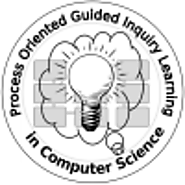
CS-POGIL | This site contains activities and other resources to support the use of Process Oriented Guided Inquiry Learning (POGIL) in Computer Science (CS) and related disciplines.
Computer Science for All is a bold new initiative to empower all US students from kindergarten through high school to learn computer science and be equipped with the computational thinking skills they need to be creators in the digital economy, not just consumers, and to be active citizens in our technology-driven world.

The story of computing is epic. It’s driven by the human passion for tinkering, inventing and solving difficult problems where accidents and luck can be as important as brilliant engineering. Explore the revolution that has changed our world...
www.acm.org - The premier society in computing brings you the Computer Portal. (including Encyclopedia of Computer Science, 4th edition)

This curriculum is designed for a high school computer science course focused on cyber security. Each of the units have activities that could be used with or without prior coding knowledge so the course is customizable to the needs of the given students/teacher.
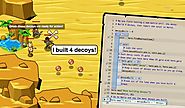
Self-Learning resources for coding -- Games, courses, websites and books

The goal of this project is to get computer science back to middle schools. Our strategy is to reform middle school IT education at a systemic level exploring the notion of scalable game design as an approach to carefully balance educational and motivational aspects of IT fluency. The original iDREAMS project (Integrative Design-based Reform-oriented Educational Approach for Motivating Students) was designed to spark an interest in IT through students' natural attraction to game design. The second phase of the project, called CT4TC (Computational Thinking for Teaching Computing) continues the original project by looking deeper into how game design helps students learn STEM concepts through collection and analysis of performance data. The third phase of the project, called oDREAMS (onnline Design-based Reform-oriented Educational Approach for Motivating Students) compares student impact between teachers who receive curriculum training face to face, online, or a combination of the two. These data will be used to improve the curriculum and also to increase the effectiveness of teacher training.
